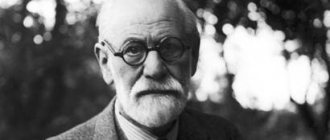Human life is divided into many spheres, each of which can be compared to a room. Is it possible to leave only the bedroom, removing the toilet and kitchen? Of course not. Unfortunately, many people do this, focusing exclusively on career or personal life goals, forgetting about everything else.
Many different spheres of a person
Although balance is much more important than success in one area, some people try to live in a room without walls, without setting any goals, preferring to go with the flow.
What are the spheres of life
The definition of spheres of life sounds like a set of goals, actions and social contacts that are interconnected. Examples of such areas include career, relationships, health, and others.
There is disagreement in psychology on this issue. Each specialist provides his own list of areas of vital activity. Some people identify 5 basic spheres, others – seven. There is no single correct list. Each person independently determines the spheres based on their own values.
Some people artificially separate different spheres of human life. To a certain extent, this is correct, because improving life in general is very difficult. It is much more reasonable to influence each aspect of it in a certain unit of time.
Happy man with balance of different spheres
Even this recommendation can be wrong. For example, parents often tell their children: “first you will have a great career, and then you will start to deal with your personal life.” But what prevents you from combining? You just need to set boundaries correctly and at one time improve skills that may be useful in future work, and at another time go on a date. Such parents advise disturbing the balance, which harms their offspring. It is better to focus on smaller time periods and spend time improving each area of a person's life throughout the day.
Important! Very often, what areas of life are considered basic are dictated by society. You don't need to pay attention to him. Everyone is the architect of their own happiness; public opinion in this matter can only hinder.
What psychological properties characterize a person?
Not all personality traits can be used to objectively assess an individual. The following psychological personality traits characterize and individualize a person:
- Innate traits that are closely related to a person’s temperament, inclinations and abilities. They cannot be changed.
- Acquired traits. This group includes the worldview, goals, skills and habits inherent in a person. Can be adjusted or changed.
Other groups of personality traits can characterize a person’s actions and are responsible for his emotional reactions. Among them the following groups are distinguished:
- Psychomotor. This is how a person shows mental and motor activity: energy, laziness, thoughtfulness, quick reaction.
- Communicative. Characterizes the level of preparedness to interact with society and other people. This group includes: cordiality, sociability, indifference, sympathy, isolation, closedness.
- Strong-willed. This group is responsible for how a person copes with difficulties and overcomes obstacles. These include: perseverance, perseverance, courage, punctuality, indecision.
- Emotional. This group includes personality traits that determine a person’s attitude to the world around him and his worldview. These include: calmness, optimism, pessimism, aggressiveness, stress resistance, good nature, anxiety.
- Intelligent. Determines how close a person is to creativity and the process of learning new things. Among them: observation, absent-mindedness, interest, creativity, initiative.
- Moral. Determines the so-called “skeleton” of a personality - its base: courage, integrity, leadership, intelligence, cowardice, cowardice.
Each of the traits is reflected in human behavior. It can also be used to determine the goals and motivations of people’s actions and judgments.
Interrelation of spheres of life
Methods for resolving conflicts - what options exist, ways to prevent them
All areas of life are closely interconnected. For example, it will be easier for a person who has achieved success in his career to build a strong family and find great friends. The opposite statement is also true. People often found success when they got married or found a friend who helped them start a business.
The same goes for health. A successful person can afford expensive treatment and high-quality prevention. In turn, health is the key to career success. This is true in all areas of life.
How do traits relate to character?
Personality traits are individual, as is character. These factors influence a person’s behavior, the motivation of his actions and his worldview.
Personality characteristics are closely related to human character. Psychologists admit that they are its basis. Personality traits are stable. They are difficult to change.
The basis of character is considered to be strong-willed personality traits or the lack thereof. If these qualities are present, a person constantly moves forward, develops spiritually, and makes decisions independently. Lack of willpower makes people susceptible to the opinions of others; most often they have low self-esteem and cannot realize themselves in life.
The inner world of a person is especially important when it comes to what influences his character. It is in this that morality, morality, the concept of good and evil lie. Of course, it is best to develop these qualities in childhood and adolescence.
Dissatisfaction in life
A person feels unhappy when he has only one goal in one area of life. Then he loses, regardless of her achievement. If a person has success in one area, others suffer. If there is no success, he has nothing to rely on. A person who has built a good career and has many good friends will worry less about failures in his personal life, even if there are some. If your whole life is subordinated to improving your relationship with your significant other, in case of failure a deep crisis will arise.
Thus, balance between different areas of life is the key to satisfaction.
Personality and its psychology
Psychological approach to personality
The concept of “personality” is used in many sciences, but their meanings are similar. In the ancient theater, a mask was a mask that an actor put on his face (versions of it can now be seen on theater pediments and posters). The mask was characteristic - “hero”, “villain”, “unfortunate”, “lover”, etc. and indicated the role that the actor played in the performance. Now, speaking about a person as an individual, we also mean his role, but in a broader sense - his role in the “theater of life”, in society, among people.
What determines such a person's role? The answers are different, but the following prevails: a person’s personal merits, which determine his place, role in society, social maturity. It is important to emphasize another thing: personality is a social characteristic and assessment of a person. It is not blood type, not digestive characteristics, not hair color, not beard, not clothes, etc. that determine what a person is as a person, but precisely his socially significant characteristics. In sociology, personality is assessed primarily by socio-demographic data and social roles. In ethics, a person is a bearer of moral values, a sense of duty and responsibility, possessing conscience and dignity. In jurisprudence, a person is a capable person, a subject of legal relations, consciously making decisions and bearing legal responsibility for actions. In pedagogy, the individual is the subject and object of the pedagogical process, the creator and participant in its goals, objectives, content, forms and methods and determines its effectiveness.
Psychology, in accordance with its subject, connects the dignity of a person as an individual with his inherent psychological properties and qualities. Personality in psychology is a systemic social quality of a person, the main holistic characteristic of his inner world, a measure of his development as a bearer of consciousness, intelligence, culture, morality, defender and creator of human values.
In these hypostases, each person appears as a member of a civilized society, as a citizen, a representative of a certain social group, as a creator, but for different people these characteristics are individualized. To become a highly developed personality means to qualitatively develop one’s inherent qualities, to take a worthy place in life, in society, and to realize personal potential. The famous German-American psychologist E. Fromm wrote:
Never before has man come so close as today to the realization of his most cherished hopes. It took millennia for man's intellectual abilities to develop, for him to learn the rational organization of society and the concentration of forces. Man created a new world, with its own laws and its own destiny. Looking at his creation, he can say: this is truly good.
But what will he say about himself? Has he come closer to realizing another dream of the human race - the perfection of man himself? - A person who loves his neighbor, is fair, truthful and fulfills what he potentially is...?
It’s awkward to even ask this question - the answer is too clear*.
* Fromm E.
Twilight of the Gods. - M., 1989. - P. 144.
This is in the interests of both the individual and society, because society is always the same as the type of personality that prevails among its citizens. Society and life in it cannot become better if people do not become better and at the same time if society itself does not create the conditions for this.
Basic psychological spheres of personality
To understand what psychological characteristics of a person characterize him as a person, we must remember that the psyche is systemic and holistic. An attempt to describe a personality with a long list of qualities (“collector’s approach”) does not allow us to correctly understand the essence of personality psychology.
, three main psychological spheres exist and function in interaction (subsystems, groupings of psychological elements - Fig. 4.1), interconnected and in a certain subordination.
The sphere of orientation (it is also called motivational, need-motivational, value-target) includes all the internal motivating forces of the individual - his views, beliefs, ideals, needs, interests, goals, life plans, inclinations, attitudes, motives, etc. determines the selective direction of the activity and relationships of the individual, involving in them (“channeling”, directing along the chosen “channel”) the flows of mental processes (attention, perceptions, thinking that arose in other psychological spheres), influencing the degree, nature and method of using opportunities, available to the individual. The sphere of orientation is responsible for “where a person lives”, what attracts him, what he strives for and applies strength to, what he achieves. This area plays a system-forming, determining, priority role in mental activity and it characterizes the personality to the greatest extent.
The operational sphere includes elements of the psyche, which are the ways and means that a person possesses and which he uses to achieve goals determined by the sphere of focus. A personality is characterized not only by what it does, but also how it does it, in what ways it achieves its goals and satisfies its needs.
The modulation (psychophysiological) sphere does not determine goals, motives, or methods of action, but has a dynamic influence on their manifestations. This is revealed in varying degrees of strength, mobility, balance, speed, consistency, emotional coloring of all mental processes and states. In the hierarchy of spheres, this sphere is the lowest, serving.
Basic properties and qualities of personality
Psychological spheres determine the main (basic) properties of a person. These most often include: the orientation of the individual, the character of the individual, the abilities of the individual, the preparedness (experience) of the individual, temperament.
The orientation of a personality is its leading psychological property, which represents the system of its motivations for life and activity, which determines the selectivity of relationships, positions and activity.
Its microstructure includes a number of qualities.
Worldview (worldview) is a set of ideas, opinions, beliefs, and views of an individual on the world, life and society.
Her worldview represents her understanding of the material and spiritual world, the meaning of life, people and their behavior occurring in society and their immediate environment, issues of politics, morality, law, economics and many others. Their motivating power is great.
Ideas that take possession of our thoughts, subjugate our beliefs - these are bonds from which we cannot break free without breaking our heart. These are demons that a person can defeat only by submitting to them.*
* Marx K., Engels F.
Op. T. 1. - P. 118.
Everyone has a worldview, but it becomes a true guide in life when it embodies the achievements of human civilization, when it is systematic, scientifically reliable and socially progressive.
Need is a stable and strong need for something experienced by a person:
in substances, conditions, objects, deeds, results, states, receiving pleasure, achieving a feeling of satisfaction. A person treats objects and phenomena of the surrounding world as objects and means of satisfying his needs. Needs prompt a person to constantly search for what satisfies them. They direct his interests, thoughts, movements. Satisfying a need causes a feeling of pleasure; failure causes a bad mood and well-being, dissatisfaction and even anger, rage, and aggression. The desire to satisfy needs is the basis of purposeful activity, and the successful results of satisfying a particular need strengthen its role in the direction of the individual.
Human needs are divided into two groups: material (socialized) and spiritual.
Material -
These are the needs for food, warmth, rest, procreation, preservation of life, clothing, housing, household items, etc.
They develop on the basis of biological, hereditary ones, but are socialized in ontogenesis (lifetime development), acquiring new characteristics and content. Thus, ancient man satisfied his hunger with pleasure by consuming, with the help of his hands and teeth, a fresh piece of bleeding meat, cut from a freshly killed animal. The same need of a modern cultured person is fully satisfied only by eating at a clean and beautifully set table, using cutlery and a napkin, on a comfortable chair, accompanied by pleasant music, etc. This is a different, transformed, socialized need that can no longer be called an animal. Such material needs as the need for a car, a refrigerator, decent clothes, a cell phone, a computer, etc., being material, are generally formed under certain social conditions and were absent from the mass of people even 5-40 years ago.
Spiritual needs -
needs for self-realization and self-affirmation, knowledge, information, continuous education, communication, work, defense of the Motherland, socially useful activities, creativity, respect for the rights and freedoms of other people, beauty, reading, music, etc. The spiritual needs of an adult are social, formed during life under the influence of its conditions. According to their mechanisms and influences, they are genuine needs - the “appetite of the spirit.” Depriving a person of freedom, the opportunity to communicate with others, play music, engage in creativity, a favorite activity, etc. - if a particular person has such spiritual needs - plunges him into acute experiences, shock, and sometimes even leads to suicide.
Ideals are images of the desired future, which for a given individual has signs of perfection and attractiveness.
Life goals are long-term and medium-term results planned by a person for implementation in life plans and activities.
Interests - selective, emotionally charged attention to certain objects, activities, results, conditions related to the possibilities of meeting needs and achieving life goals.
Social attitudes are a stable predisposition developed on the basis of experience, a person’s readiness for a certain form of response (perception, assessment, action, behavior) when in contact with certain social objects, factors, conditions, events, information.
Tendencies - a positive attitude, attraction, craving for some activity.
Motives are the driving forces of specific choices, decisions and actions realized by the individual*.
The goal is what a person strives for, the motive is
for what,
for what he needs it. Motives characterize the typical, predominant internal reasons for a person’s choice of goals, methods, actions and actions**. The same manifestations of activity can be generated by different motives. For example, different students may have motives behind entering a university: “I want to become an educated person”, “I want to be a highly qualified professional”, “my parents insisted”, “I need a diploma”, “so as not to serve in the army”, “to live a happy life for several years” student life”, etc.
* In psychology, the concept of “motive” is used in two meanings. In a broad sense, motives are all the forces of a person that encourage him to set goals, actions and deeds to achieve them and other manifestations of activity. In this sense, all components of orientation are motives, and it itself is a motivation system. In a narrow sense, a motive is the personal meaning of a particular activity, an indicator of why one exhibits it.
** An act is a socially assessed act of behavior, prompted by conscious motives. An action always has a moral, legal, cultural, etc. assessments. A person’s self-assessment of an action and other people’s assessment of it may not coincide. A person may consider his action to be a manifestation of culture, while others may consider it to be lack of culture.
Action is an element of activity. There are sensory, motor, mental, volitional, educational, professional and other actions.
The property of directionality is the most important property that has a dominant influence on others. A person can give all of himself to achieve results that are significant to him and not lift a finger to get others, remain deaf to the most correct calls. It depends on the characteristics of its focus.
The character of a person (a property related to his operational sphere) is the system of stable relationships that an individual has developed towards work, towards other people and towards himself.
These relationships largely depend on the orientation, but are also associated with
special knowledge
that regulates relationships,
value orientations, skills
in implementing relationships, as well as corresponding
habits
and
qualities.
Value orientations are of fundamental importance—social values internally understood, approved and accepted by the individual for implementation.
Attitudes to work are expressed in the individual’s knowledge, corresponding labor value orientations, skills, abilities, habits and qualities of purposefulness, efficiency, enterprise, hard work, responsibility, conscientiousness, perseverance, activity, independence, initiative, organization.
Attitudes towards people are expressed in respect for the individual, humanity, humanity, benevolence, politeness, democracy, justice, kindness, altruism, tolerance, sympathy, corporatism, collectivism, cooperation, sociability, sociability, aggressiveness, conflict, etc.
Attitude towards oneself is characterized by a person’s self-perception and self-esteem of himself and his characteristics, his conscientiousness, attitude towards the need to become a cultured, educated and civilized person, self-demandingness, self-criticism, self-control, attitude towards self-improvement, personal growth, self-realization and self-affirmation, towards a worthy image life, to preserve physical and mental health, personal aspirations, ambition, etc. Attitude towards oneself in psychology is associated with the phenomenon of reflection -
the ability and habit to look at oneself from the outside, to see through the eyes of other people, to take into account their assessment of oneself.
The level of development of reflection in a particular individual largely characterizes the level of its development as a whole, determines its attitude towards self-improvement and decent behavior among people. Neglect of others' opinions of oneself is a common cause of low culture, personal primitivism and stagnation in development. Reflection is an essential part of self-awareness.
There is research data that shows that it is the individual indicator that most reliably predicts the possible pattern of behavior of a given individual.
Most of the personality relationships enshrined in character are moral. Moral -
a system of values and norms of behavior that embodies the prevailing ideas in society about good and evil, justice and injustice, honesty and decency.
Character embodies the moral and psychological characteristics of a person.
This is not an abstract morality, but a morality that lives in the individual and is active, an arsenal of moral relations that give rise to his actions with the choice and implementation of their characteristic methods of behavior and problem solving. For example, you can enter college by showing conscientiousness, diligence, organization, being demanding of yourself, and good preparation for exams. But some choose “workaround” paths and methods: patronage, acquaintances, gifts to the “right people,” bribes, cheating, etc. They do not choose by chance, because this is their morality, embodied in value orientations and character traits. It is immoral means and methods, and not conscientious work, high professionalism and other personal virtues, that are also used when a person is overwhelmed by a thirst for personal enrichment at any cost. It is no coincidence that they say that great wealth is acquired in most cases not through professionalism, but through dishonest means. It is obvious that assessing the characteristics of a person’s character and its formation are of great personal and social importance.
Personal abilities (also related to the operational sphere) are a property associated with special personality qualities that contribute to the quick and relatively easy mastery of something, its effective implementation and progressive success.
A distinction is made between private (individual, functional) abilities and the ability for a specific profession or specialty.
To private abilities
include: intellectual, creative, business, organizational, artistic, observation, memorization, endurance, ear for music, etc. They are, as a rule, conditioned by the special development of individual qualities. Thus, creative abilities include a sense of the new, adaptability to the new, inquisitiveness, a tendency to “get to the bottom” of complex problems, a tendency to experiment, respect for data and methods of science, etc.
The second type of ability is the ability for a certain profession, specialty, type of activity.
This ability is always a personal complex. It includes individual private abilities and qualities related to other properties - orientation, character, psychophysiology. It is impossible, for example, to evaluate an applicant as having the necessary abilities to become a good specialist in the profile of the institute if he has good mental abilities, the makings of an organizer, activity, courage, but he is lazy, not self-critical, and dishonest. An assessment, for example, of a person’s ability to become an opera soloist cannot be positive if the applicant is disciplined, neat, self-possessed, polite, intelligent, hardworking, friendly, but has no voice.
The ability to learn (the ability to assimilate educational material) and the ability to practice in a specialty do not always coincide.
Find a business based on your abilities - there is one more creator on earth, one less consumer. Work beyond one's abilities is unproductive, unlucky, difficult, and a burden. A person without the ability to do the work in which he is engaged, as a rule, makes not the best decisions, does not very successfully implement the available means and working conditions, uses methods and techniques of action that are not the same as the capable one, performs worse the same ones, makes mistakes more often and mistakes often bring harm rather than benefit. If the majority of citizens were engaged in activities for which they have the ability, the success of society would triple.
Assessing abilities is a necessary, delicate matter and should be carried out with the participation of a specialist psychologist. Personal desire to become someone is a deceptive indicator. There is a paradox: people often want to do things for which they do not have the ability; they consciously, and more often subconsciously, feeling their weakness in something, strive to overcome it.
The experience (preparedness) of an individual is another property related to the operational sphere - the totality of knowledge, actions, techniques, and business qualities that the individual acquired in the process of lifetime development and uses on the way to achieving life and professional goals.
Without this property, a person cannot have social significance, achieve self-affirmation and what he wants in life.
In the conditions of modern Russia, the professionalism
of an individual (detailed in Section III) - one of the types of his preparedness - has acquired increased importance for him and for society.
Personal temperament * is a property that characterizes the modulation sphere of its psychology - a set of dynamic features of mental activity that depend on the characteristics of the higher nervous activity of a given person.
* From Lat. temperamentum - ratio of parts, mixture.
There are a number of traits (features) of temperament:
• force -
intensity, severity of mental processes;
• mobility -
the speed of emergence and cessation of mental processes;
• flow rate
mental processes;
• poise -
balance of activity, impulses, impulsive responses with restraint, inhibition;
• rigidity* — plasticity —
difficulty or ease of adapting to a new environment, tasks, correcting habits, skills, etc.;
• activity -
stable level of activity, energy of mental activity;
• sensitivity** —
increased or decreased sensitivity of a person to all or some influences on the senses. Thus, a slight noise in the reading room may irritate one student, but another may not notice it;
• emotionality -
emotional reactivity, the degree of emotional response to influences;
• psychophysiological stability -
resistance to risk and danger, overload, overstrain, shock (possibly caused by the sight of blood, a corpse, life failures, etc.);
• performance -
reserve of psychophysiological endurance.
* From Lat. rigidus - numb, hard.
** From Lat. sensus - feeling, sensation.
Complexes of various psychophysiological characteristics serve as the basis for distinguishing types of temperament.
There are four general types, determined by the characteristics of the nervous system (their names were given back in the 5th century BC by Hippocrates):
• sanguine.
The most common type among people.
A person who has it - a sanguine person -
is distinguished by activity, expressiveness and strength of all processes, emotionality, easy switchability, flexibility, a tendency to a variety of types of activity, stability, and efficiency. He is balanced, optimistic, cheerful and easy-going. The flip side of these characteristics is low perseverance, dislike of monotonous work, and sometimes a tendency to change where one must be constant;
• choleric.
A person who has it,
a choleric person,
is also distinguished by high activity, increased emotionality, easy switchability, efficiency, mobility, speed of reactions, their strength, intensity, and rapid adaptation to new conditions. He has fast speech, expressive facial expressions, and gestures. Disadvantages - imbalance, rapid mood swings, irritability, impulsiveness. In general, according to I.P. Pavlova, this is a fighting type;
• phlegmatic.
It is based on a strong, balanced, but sedentary type of nervous system. A phlegmatic person is efficient, usually calm, restrained, stubborn, assiduous, stable, but slow, lethargic, and therefore avoids changes and situations where he needs to react quickly, cautious, thinks for a long time about upcoming actions, is indecisive, and prone to conservatism;
• melancholic
(about 2% of people). The most characteristic natural prerequisite for a melancholic person is the weakness of nervous processes. Therefore, he is highly sensitive, emotional and because of this he is not sufficiently balanced, unstable, and psychologically vulnerable. He is prone to negative moods, sad experiences, perceiving phenomena “through dark glasses”, is pessimistic, prone to confusion, and can be tearful. Performance is reduced. A melancholic person is like a thin string, sounds from the slightest touch, but can break from rough ones. These features have other advantages: good observation, attention to the troubles of others and responsiveness, increased self-criticism.
Research by I.P. Pavlov served as the basis for identifying three more types of temperament based on the characteristics of the relationship between two signaling systems in higher nervous activity:
• art
type. Distinguished by a tendency to direct, vivid, vivid perception, impressionability, emotionality, imaginative thinking, an increased role of ideas in solving practical problems, vivid imagination;
• mental
type. People with this type are reasonable, thoughtful, prone to analysis, logical constructions, reasoned evidence, well-founded conclusions, thinking through their actions, self-reporting and self-control;
• artistic-thinking (average)
type combines the features of polar types in equal proportions.
A classification of personality types based on a psychophysiological trait called extroversion-introversion has also become widespread in psychology.
which was proposed by the Swiss K. Jung.
People of the extroverted
type are characterized by a predominant direction of mental activity outward, into the world around them, openness and strong susceptibility to external influences, a desire to assert themselves in the actions and opinions of others, speech and motor activity, and good adaptability to external conditions.
The introverted
type, on the contrary, is characterized by a focus on the inner world, pronounced development of the imagination, increased attention to one’s own feelings, experiences, thoughts, some isolation, and difficulty adapting to external conditions.
Any typology is discrete. When classifying a person as a certain type, they are guided by the prevailing characteristics of temperament.
Psychophysiological characteristics are usually masked by other personal qualities. Thus, lack of self-control does not necessarily indicate a choleric temperament, but may be a product of bad manners, lack of culture, and disrespect for other people. And on the contrary, the imbalance, impulsiveness, and “explosiveness” of a choleric person may not be detected as a result of the formed habit of controlling oneself, managing one’s reactions, etc.
Individual, general and special in personality
Every person has all psychological properties. Another thing is important: what is the quality of each component, its “filling” with content, what exactly are the features of views, beliefs, interests, motives, relationships, abilities, preparedness, psychophysiology, etc. It is difficult to find two people who would have the same, that makes the personality of each person uniquely unique and constitutes its individuality. Each person is therefore unique.
While emphasizing individuality, it is still a mistake to reduce personality to it. As in all phenomena of the surrounding world, in each of us the individual (singular) is combined with the general and the special. We have common psychological properties, everyone’s thinking is human thinking, functioning on the same meanings of words and logical rules. By receiving an education, we acquire knowledge from the arsenal of human culture, more or less the same, provided for by the State educational standard, tested in exams, and then used in life. We load our memory with information obtained from uniform textbooks. When exchanging information, we use signals of a single code - verbal, etc. What is special is what makes us psychologically similar to people of a certain group - citizens of our state, representatives of a professional group (doctors, teachers, military, lawyers, etc.), nationality, gender, etc.
It is necessary to distinguish between individuality and individualism in a person. Individualism
as a special philosophy - a type of worldview that unconditionally places the interests of the individual above all else. A distinctive feature of the psychology of an individualist is egoism, narcissism, an exaggerated opinion of oneself, one’s merits and importance, the conviction of the need to live only for oneself, ignoring the interests of other people and society. Individuality is valuable, but individualism is immoral and parasitic, because it is associated with the appropriation of the right to live at the expense of others.
The described psychological structure of personality forms the basis of a program for studying the personality of each person (including all properties and its components), allows you to comprehensively, step by step evaluate his characteristics, and also decide what to pay attention to, what to improve and develop.
Wheel of Life Balance
To understand the overall picture, structure and improve the quality of life, psychologists suggest visualizing personal areas of activity using such a concept as the “balance wheel”. The approach is as follows. The circle is divided into segments-spheres, which are filled based on the depth of “pumping” in the chosen direction.
The resulting wheel cannot be perfectly round - it is impossible to succeed equally in all areas. But it must fulfill its immediate function - the ability to move forward, to roll. The model clearly shows which areas a person needs to pay special attention to in order to balance his life and avoid possible crises.











